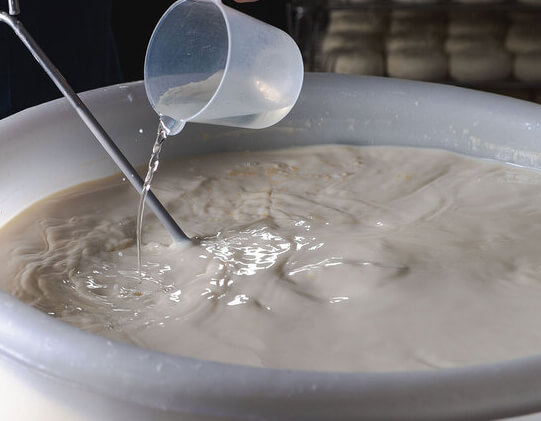Functional Starter Culture
پنجشنبه ، 20 آذر 1399

Functional Starter Cultures for Fermented Dairy Products
Fermented dairy products are known for their high nutritional and therapeutic value and are also having excellent sensory characteristics, which make them popular throughout the world. Most of the characteristics of fermented products can be attributed to the activity of their starter culture. The starter microorganisms, in the course of their metabolism, elaborate various compounds and enzymes, which impart desirable properties to the product. Lactic acid bacteria (LAB) are the most common starter bacterial group used extensively in fermentation of dairy products. Lactic acid bacteria synthesize different compounds belonging to classes of organic acids, gases, bacteriocins, flavoring agents, biothickners, nutrients, etc. Molecules within each class vary for each species and even within strains. The functionalities from such novel starter cultures include improved nutritional value, sensory characteristics, and
therapeutic benefits. These starter cultures are thus important for development of functional fermented and probiotic products.
Fermented foods are an important part of tradition as well as nutrition across all human civilizations. The long traditions of manufacturing these fermented products over a geo-temporal space have closely imbibed the cultures associated with such products with human health and well-being. Fermented products are known for their rich nutritional as well as therapeutic benefits. The health promoting aspects of these products can either be assigned to the culture consortia involved in the fermentation or the biochemical
alterations in the substrate matrix brought about by the fermentation or both. The microbial cultures associated with fermentation have a wide biodiversity and impart specific functional characteristic to the product. These attributes can be broadly classified into technological and therapeutic functionalities. Growth of fermenting bacteria, mostly lactic acid bacteria (LAB) have a distinct effect on the food functionality depending upon the species or strain of the culture and the composition of food matrix.
Besides this basic feature, the technological and health promoting activity of the cultures vary widely.
Manufacturing of fermented milk products like yogurt, cultured buttermilk, cheese etc. require fermentation of milk by suitable microorganisms. These starter organisms result into breakdown of carbohydrates and other nutritional macromolecules present in milk to lactic acid and other constituents.
The production of metabolic end products of bacterial metabolism results in specific physico-chemical changes in milk, which are determined by combination of factors like type of starter bacteria, growth processing conditions and composition of milk. One of the key activities of starter cultures is to produce organic acid especially lactic acid, formic acid and acetic acid. The acid production causes secondary effects such as drop in pH of the medium inducing a protein mediated coagulation of milk. The lactic
acid imparts a characteristic acid flavor and results in preservation of milk solids. Flavor production by starter or adjunct cultures is important for development of the delicate flavor and aroma of fermented milk products. The major flavoring compounds include diacetyl, acetoin and acetaldehyde. The biosynthesis of flavor compounds is a species and/or strain specific phenomenon. The milk in its natural form is very prone to microbial spoilage and has a very limited shelf-life. Production of fermented milk
products is a unique and natural way to preserve the milk solids for a longer period. This preservative action is effected through organic acids, antimicrobial and antifungal compounds synthesized by the starter cultures. The starter culture used for manufacture of fermented products, are carefully selected based on their biochemical and metabolic characteristics and their suitability to impart a specific functionality or characteristic to a particular product (Table 1). Traditionally, such fermented products have been the habitat for these cultures. In today’s times, an industrial practice is to isolate the cultures from their niches, identify, characterize, and prepare freeze-dried starter cultures to use them for commercial scale operations.